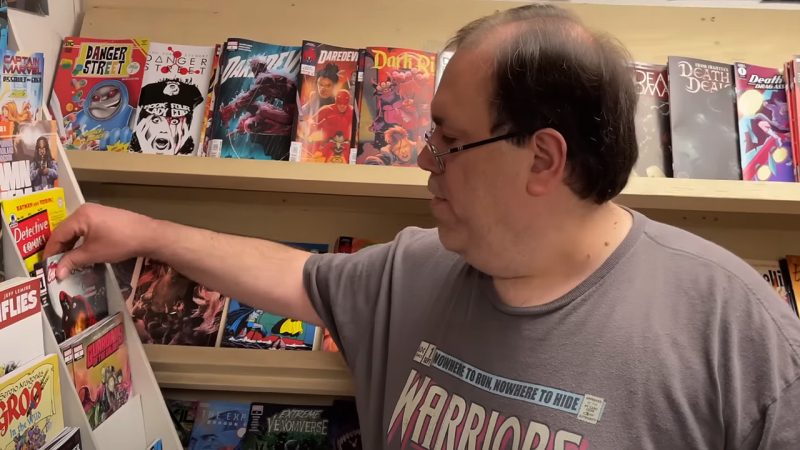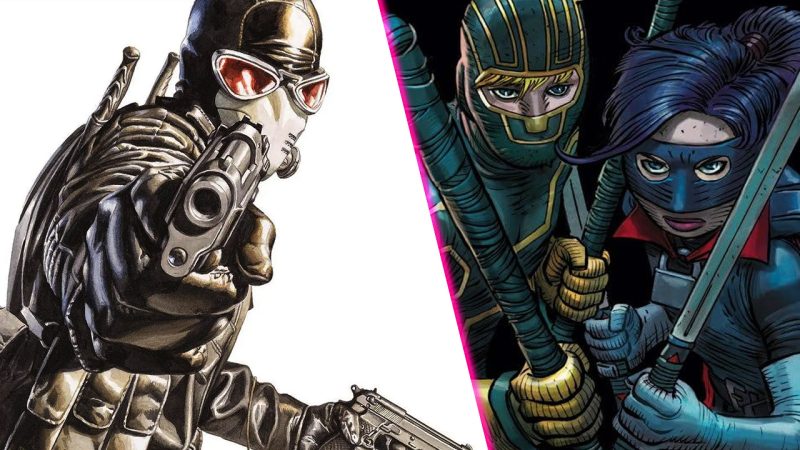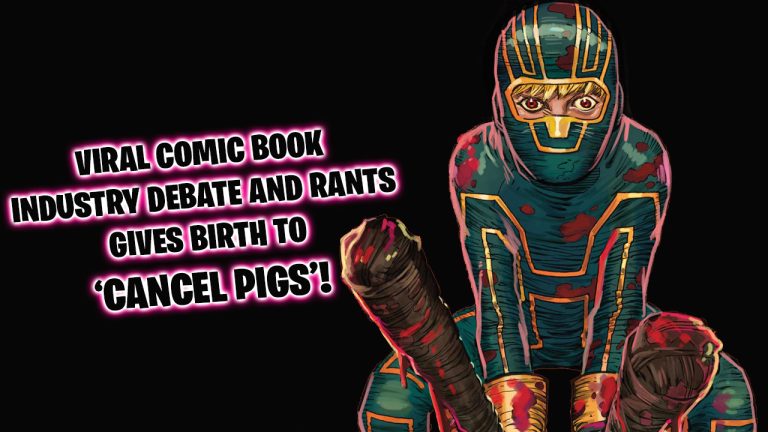The comic book industry debate and rantings came to a fever pitch this past week involving fans, creators, and retailers. Out of the emotional discussions, the buzzword “Cancel Pigs” trended on social media.
Comic book debacles are not an unusual event, as the community of comic book fans and professionals is extremely passionate. But things came to a head recently because of a viral video featuring a longtime comic book retailer who expressed his frustration at the current state of the industry, particularly with DC Comics and Marvel Comics writers. Reactions to the video sparked intense debates from both sides of the fence.
The video in question is that of Glenn O’Leary, a comic book retailer who runs The Comic Palace. O’Leary’s YouTube channel named after his comic book shop has videos showing his interactions with customers and new product arrivals.
One video, in particular, had O’Leary talking with friends who are also comic book enthusiasts. When the conversation touched on the problematic characterization in mainstream superhero comics, O’Leary had this to say:
“The writers nowadays they don’t care about the characters or what the character is anymore. Most of these new writers don’t have the love of comics like these older writers had. And all they care about is how can I put myself in the book?”
O’Leary went on to use Marvel Comics characters as examples of this apparent trend of self-inserting by current writers:
No, we don’t care what you would do if you were Iron Man. We don’t care who you [the writers] are. You’re writing Tony Stark. You’re not writing yourself in a book. If that’s the case, write your own comic with you in it. No one will read it cuz nobody cares!”
The Comic Book Palace owner further emphasized that fans grew up “loving Peter Parker, loving Miles Morales” and other comic book characters. He attributed this as one of the contributors to why comic book stories are not winning new and old fans over, leading to weak sales.

The clip of Mr. O’Leary’s rant quickly went viral on social media platforms, particularly on X.com (formerly Twitter). But while many agreed with the frustrations O’Leary expressed, others did not. And it did not end with just the comic book fans. Comic book professionals also took notice.
Unfortunately, the debates spiraled into verbal attacks, with some responses going as far as insulting the veteran comic shop retailer.
The bullying of retailer Glenn O'Leary was the turning point last week. The change in the air was palpable. The absolute cruelty of these digital mobs was very, very visible to all and this won't be tolerated going forward. Glenn, you saved comics. You were our Spartacus! 🙂 pic.twitter.com/oCalFi3wPj
— Millarworld (@mrmarkmillar) December 10, 2023
Mark Millar, a comic book writer who has worked for both DC and Marvel and the creator of his own IPs such as Wanted, Kingsman, and Kick-Ass, weighed in on the discussion. Millar had similar sentiments about the current status of the comic book industry and interviewed O’Leary as well as other comic book retailers. It was during this debacle that Millar coined the term “Cancel Pigs”.
The expression is in reference to the extreme mob attitude of some embittered fans and creators targeted at parties that disagree with them. It even trended on social media with the hashtag #CancelPigs. Millar himself specified whom the derogatory term is directed at, stating “Twitter packs like the people who mobbed retailer Glenn O’Leary last week, mocking him and trying to destroy his reputation.”
Twitter packs like the people who mobbed retailer Glenn O'Leary last week, mocking him and trying to destroy his reputation. We've seen it happen with comic pros too like Howard Chaykin & many others. Entirely for sport. The Cancel Pig exists to destroy because he cannot CREATE. https://t.co/mNne8XpAUQ
— Millarworld (@mrmarkmillar) December 11, 2023
The term Cancel Pigs has since been adopted by other fandoms beyond the comic book community. Generally, it is used in reference to individuals and groups trying to silence others’ opinions, associating it to the practice of “Cancel Culture“.

Do you agree with comic book retailer Glenn O’Leary’s take on the current mainstream comic book writing being problematic? Should comic book writers handling popular superhero properties from DC and Marvel approach their work more as custodians? Or should these writers have the creative freedom to do as they please with established comic book IPs, regardless of the fans’ consensus?

